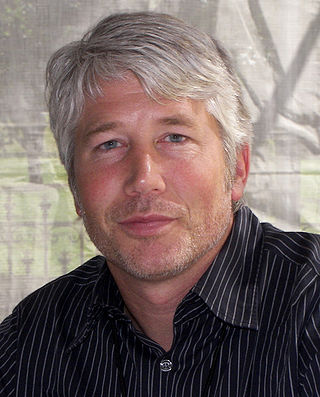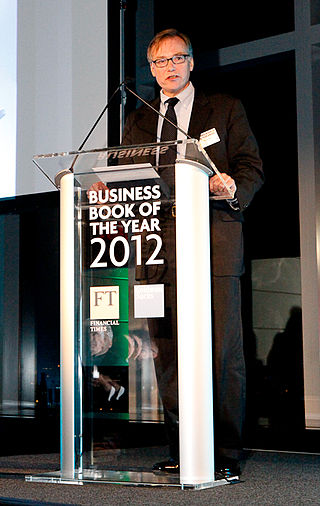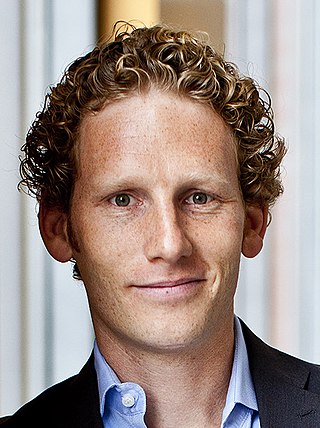Related Research Articles

Creative accounting is a euphemism referring to accounting practices that may follow the letter of the rules of standard accounting practices, but deviate from the spirit of those rules with questionable accounting ethics—specifically distorting results in favor of the "preparers", or the firm that hired the accountant. They are characterized by excessive complication and the use of novel ways of characterizing income, assets, or liabilities, and the intent to influence readers towards the interpretations desired by the authors. The terms "innovative" or "aggressive" are also sometimes used. Another common synonym is "cooking the books". Creative accounting is oftentimes used in tandem with outright financial fraud, and lines between the two are blurred. Creative accounting practices are known since ancient times and appear world-wide in various forms.

A business model describes how an organization creates, delivers, and captures value, in economic, social, cultural or other contexts. For a business, it describes the specific way in which it conducts itself, spends, and earns money in a way that generates profit. The process of business model construction and modification is also called business model innovation and forms a part of business strategy.
In the field of management, strategic management involves the formulation and implementation of the major goals and initiatives taken by an organization's managers on behalf of stakeholders, based on consideration of resources and an assessment of the internal and external environments in which the organization operates. Strategic management provides overall direction to an enterprise and involves specifying the organization's objectives, developing policies and plans to achieve those objectives, and then allocating resources to implement the plans. Academics and practicing managers have developed numerous models and frameworks to assist in strategic decision-making in the context of complex environments and competitive dynamics. Strategic management is not static in nature; the models can include a feedback loop to monitor execution and to inform the next round of planning.

The Goal is a management-oriented novel by Eliyahu M. Goldratt, a business consultant known for his theory of constraints, and Jeff Cox, the author of several management-oriented novels. The Goal was originally published in 1984 and has since been revised and republished. This describes a case study in operations management, focusing on the theory of constraints, and bottlenecks and how to alleviate them. In 2011, Time Magazine listed the book as one of "the 25 most influential business management books".

New Coke was the unofficial name of a reformulation of the soft drink Coca-Cola, introduced by The Coca-Cola Company in April, 1985. It was renamed Coke II in 1990, and discontinued in July 2002.

Po Bronson is an American journalist and author who lives in San Francisco.

Robert McKee is an author, lecturer and story consultant who is known for his "Story Seminar", which he developed when he was a professor at the University of Southern California. McKee is the author of Story: Substance, Structure, Style and the Principles of Screenwriting, Dialogue: the Art of Verbal Action for Stage, Page and Screen, Storynomics: Story-Driven Marketing in the Post-Advertising World and Character: The Art of Role and Cast Design for Page, Stage, and Screen. McKee also has the blog and online writers' resource "Storylogue".

Blue Ocean Strategy is a book published in 2004 written by W. Chan Kim and Renée Mauborgne, professors at INSEAD, and the name of the marketing theory detailed on the book.
Regis McKenna was an American marketer in Silicon Valley and introduced some techniques today commonplace among advertisers. He and his firm helped market the first microprocessor, Apple's first personal computer, the first recombinant DNA genetically engineered product, and the first retail computer store.

Influencer marketing is a form of social media marketing involving endorsements and product placement from influencers, people and organizations who have a purported expert level of knowledge or social influence in their field. Influencers are someone with the power to affect the buying habits or quantifiable actions of others by uploading some form of original—often sponsored—content to social media platforms like Instagram, YouTube, Snapchat, TikTok or other online channels. Influencer marketing is when a brand enrolls influencers who have an established credibility and audience on social media platforms to discuss or mention the brand in a social media post. Influencer content may be framed as testimonial advertising.
Loyalty marketing is a marketing strategy in which a company focuses on growing and retaining existing customers through incentives. Branding, product marketing, and loyalty marketing all form part of the customer proposition – the subjective assessment by the customer of whether to purchase a brand or not based on the integrated combination of the value they receive from each of these marketing disciplines.
ASOS plc is a British online fast-fashion and cosmetic retailer. The company was founded in 2000 in London, primarily aimed at young adults. The website sells over 850 brands as well as its own range of clothing and accessories, and ships to all 196 countries from fulfilment centres in the United Kingdom, the United States, and Europe.

Martin Lindstrom (Lindstrøm) is a Danish author and Time magazine Influential 100 Honoree. He has written eight books including Small Data: The Tiny Clues that Uncover Huge Trends, Buyology – Truth and Lies About Why We Buy, Brandwashed – Tricks Companies Use to Manipulate Our Minds and Persuade Us to Buy, his first title written for consumers, for which Lindstrom conducted a $3 million word-of-mouth marketing experiment, and 2021 released The Ministry of Common Sense. Brandwashed was inspired by the 2009 film, The Joneses – to study the effects of social influence on purchasing decisions.

Financial Times Business Book of the Year Award is an annual award given to the best business book of the year as determined by the Financial Times. It aims to find the book that has "the most compelling and enjoyable insight into modern business issues". The award was established in 2005 and is worth £30,000. Beginning in 2010, five short-listed authors each receive £10,000, previously it was £5,000.
Word-of-mouth marketing is the communication between consumers about a product, service, or company in which the sources are considered independent of direct commercial influence that has been actively influenced or encouraged as a marketing effort. While it is difficult to truly control word of mouth communication, there are three generic avenues to 'manage' word of mouth communication for the purpose of word-of-mouth marketing, including:
In response to shifts in consumer behavior and conditions brought on by postmodernism, many companies changed their marketing approach to address and create more nimble, immersive experience and customer engagements. It is stated that the traditional means of brand management has grown increasingly hard and complex within the postmodern marketplace. A brand in its modernist or traditional interpretation by marketing schools of thought and accredited, professional associations is defined as a, "name, term, design, symbol or any other feature that identifies one seller's good or services as distinct from those of other sellers. This definition, argued by Muzellec and McDonagh refers to the brand as a single reality or focus on only one-way addressable interaction partners that in many way are not current with customer communications.

John Emory Powers (1837–1919) was a highly influential American copywriter. The world's first full-time copywriter, he worked for the department stores Lord & Taylor and Wanamaker's before becoming a freelancer in 1886. Regarded as the father of modern creative advertising, he was inducted into the Advertising Hall of Fame in 1954.
Creative disruption was introduced in 1992 by TBWA's chairman Jean-Marie Dru. It refers to a radical change in a marketplace brought about by the overturning of existing conventions.
Jonah Sachs is an American storyteller, author, designer and entrepreneur. He is the author of Winning the Story Wars: Why Those Who Tell—and Live—the Best Stories Will Rule the Future (2012) and Unsafe Thinking: How to Be Nimble and Bold When You Need It Most. Sachs is the co-founder and former CEO of Free Range Studios, a brand-consulting agency for social brands and causes with campaigns based on storytelling.

Jonah Berger is a professor at the Wharton School of the University of Pennsylvania, an author, and a viral marketer. He has published over 50 articles in academic journals and has written for The New York Times, The Wall Street Journal, and Harvard Business Review. More than a million copies of his books Contagious: Why Things Catch On, Invisible Influence: The Hidden Forces that Shape Behavior, and The Catalyst: How to Change Anyone's Mind are in print in over 35 countries.
References
- ↑ "Media That Matters Film Festival: Films". Mediathatmattersfest.org. Retrieved 2009-07-17.
- ↑ Sachs, Jonah (2012). Winning the Story Wars: Why Those Who Tell -- and Live -- the Best Stories Will Rule the Future. Harvard Business Review Press. p. 272. ISBN 978-1422143568.
- ↑ Sachs, Jonah (5 May 2012). "Empowerment Marketing: Advertising To Humans As More Than Just Selfish Machines". Fast Company Co.Exist. Retrieved 10 July 2012.
- ↑ Sachs, Jonah (2018). Unsafe Thinking: How to be Nimble and Bold When You Need It Most. Da Capo Lifelong Books. ISBN 978-0-7382-2014-7.